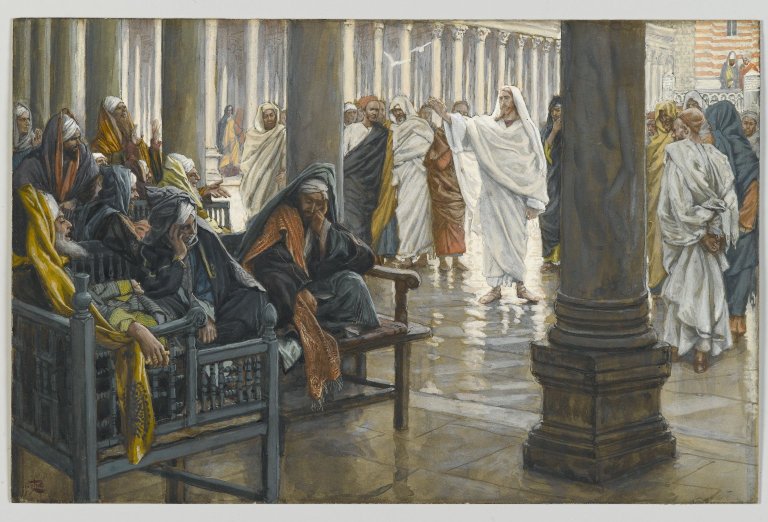
Say And Do Not
Woes on the Pharisees
It was the last day of Christ's teaching in the temple. Of the vast throngs that were gathered at Jerusalem, the attention of all had been attracted to Him; the people had crowded the temple courts, watching the contest that had been in progress, and they eagerly caught every word that fell from His lips. Never before had such a scene been witnessed. There stood the young Galilean, bearing no earthly honor or royal badge. Surrounding Him were priests in their rich apparel, rulers with robes and badges significant of their exalted station, and scribes with scrolls in their hands, to which they made frequent reference. Jesus stood calmly before them, with the dignity of a king. As one invested with the authority of heaven, He looked unflinchingly upon His adversaries, who had rejected and despised His teachings, and who thirsted for His life. They had assailed Him in great numbers, but their schemes to ensnare and condemn Him had been in vain. Challenge after challenge He had met, presenting the pure, bright truth in contrast to the darkness and errors of the priests and Pharisees. He had set before these leaders their real condition, and the retribution sure to follow persistence in their evil deeds. The warning had been faithfully given. Yet another work remained for Christ to do. Another purpose was still to be accomplished.
The interest of the people in Christ and His work had steadily increased. They were charmed with His teaching, but they were also greatly perplexed. They had respected the priests and rabbis for their intelligence and apparent piety. In all religious matters they had ever yielded implicit obedience to their authority. Yet they now saw these men trying to cast discredit upon Jesus, a teacher whose virtue and knowledge shone forth the brighter from every assault. They looked upon the lowering countenances of the priests and elders, and there saw discomfiture and confusion. They marveled that the rulers would not believe on Jesus, when His teachings were so plain and simple. They themselves knew not what course to take. With eager anxiety they watched the movements of those whose counsel they had always followed.
In the parables which Christ had spoken, it was His purpose both to warn the rulers and to instruct the people who were willing to be taught. But there was need to speak yet more plainly. Through their reverence for tradition and their blind faith in a corrupt priesthood, the people were enslaved. These chains Christ must break. The character of the priests, rulers, and Pharisees must be more fully exposed.
"The scribes and the Pharisees," He said, "sit in Moses' seat: all therefore whatsoever they bid you observe, that observe and do; but do not ye after their works: for they say, and do not." The scribes and Pharisees claimed to be invested with divine authority similar to that of Moses. They assumed to take his place as expounders of the law and judges of the people. As such they claimed from the people the utmost deference and obedience. Jesus bade His hearers do that which the rabbis taught according to the law, but not to follow their example. They themselves did not practice their own teaching.
And they taught much that was contrary to the Scriptures. Jesus said, "They bind heavy burdens and grievous to be borne, and lay them on men's shoulders; but they themselves will not move them with one of their fingers." The Pharisees enjoined a multitude of regulations, having their foundation in tradition, and unreasonably restricting personal liberty. And certain portions of the law they so explained as to impose upon the people observances which they themselves secretly ignored, and from which, when it served their purpose, they actually claimed exemption.
DA 610-612